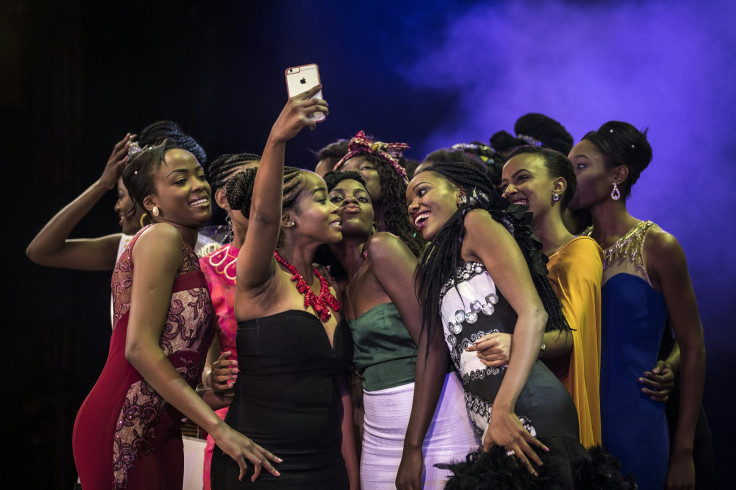Africa Gets Its First Startup Accelerator For Beauty Entrepreneurs

Africa is about to get its first startup accelerator for women entrepreneurs in the $445 million global beauty industry, thanks to a partnership between She Leads Africa and the L’Oreal brand Dark and Lovely. Almost two hundred startups have already applied for South Africa-based program offering $5,000 investment, mentorship and networking opportunities with the broader tech industry, including digital media, e-commerce and mobile apps.
American and European markets are already full of beauty tech startups that made it big after accelerator programs, from Y Combinator’s Hush and Memobox to tech-savvy beauty incubators backed by retailers like Sephora and Target. Some apps help users find local services and book appointments, beyond retail, while other startups invent high-tech gadgets for hair and skincare. CB Insights reported beauty tech startups have raised $1.7 billion so far. Yet even though L’Oreal estimated the African beauty market is worth almost $11.9 billion, few venture capitalists give the continent’s beauty industry much thought.
“The Middle East and Africa is the fastest growing beauty market in the world,” She Leads Africa co-founder Afua Osei told International Business Times. “This is absolutely the first program that focuses on beauty entrepreneurs and definitely the first one that focuses on a pan-African approach.”
African women are joining the workforce in droves. Quartz reported several African countries have the highest number of women in the workforce worldwide. According to the Pew Research Center, Zimbabwe, Tanzania, Liberia and Malawi all have a higher percentage of women in the workforce than either the United States or United Kingdom. Around the world, black women want to see beauty companies recongizing their purchasing power. Nigerian author Chimamanda Ngozi Adichie recently became a beauty ambassador for campaigns by the UK-based company that owns No.7 cosmetics. But she is still an outlier in the global marketplace. “I think that money equals power," Osei said. "One of the reasons why in many markets people of color are ignored is because big brands don’t think these people buy products."
African women are an untapped market for mobile apps, state-of-the-art products and tech-savvy services. Cellphones are increasingly common across the continent. In 2015, Pew Research Center surveys of Africans over 18 found roughly a third of South Africans and a quarter of Nigerians owned a smartphone. “It’s definitely ripe for innovation and for women here on the continent to say: I understand the unique challenges here on the ground,” Osei said. “It’s a serious business opportunity. When we talk about beauty some people think it’s frivolous.”
There’s no Sephora in Africa. So, absent a megastore beauty retailer, even the most innovative niche cosmetic companies have a hard time distributing their products. “If you’re a new brand, how do you actually get your products out there if you can’t just go to a mall?” Osei asked. “Logistics and distribution is a big challenge. If someone is buying a small product, how do we create a way where it’s not prohibitive for them to buy just one tube of lipstick? Or just one hair product?”
E-commerce technologies need to create a unique set of solutions to really tap into the African market. Plus, augmented reality apps designed with African hair and complexions in mind could also help brands reach new customers by bringing a virtual stylist directly to their phones.
There are already a slew of mobile apps that offer AR makeovers or use facial scans to make customized makeup shades, startups like ModiFace and MatchCo. The latter raised $2.5 million and garnered 50,000 downloads before it was acquired by the Japanese cosmetics powerhouse Shiseido. However, for high-tech apps to conquer the African markets, developers need to keep a whole new set of parameters in mind. “Are you thinking about the types of devices people are using? Thinking about data and connectivity challenges?” Osei asked. Youtube GO overcame this issue in Nigeria with a feature that lets users download content for offline viewing. “Those are the kinds of innovations that will be successful in this emerging market,” Osei added.
The new African beauty accelerator plans to launch their first program in October. If African beauty tech entrepreneurs succeed, they could do so much more than make money by selling products and services. They could challenge the global tech industry’s status quo, not to mention the eurocentric beauty industry at-large.
Osei wants African women not to just accept products and marketing from Paris, Milan and New York. Instead, she wants African businesses to profit from the growing demand for beauty tech. “It will change the way people view African women. It won’t be from this lens of ‘we need to help them’ or ‘they are suffering.’ No, they are just like any other consumer,” Osei said.
“It will change the perception, the way people approach African women as consumers and as influencers in the global beauty market...we should treat them with respect. We should invest because we [investors and brands] can grow in this market.”
© Copyright IBTimes 2024. All rights reserved.





















